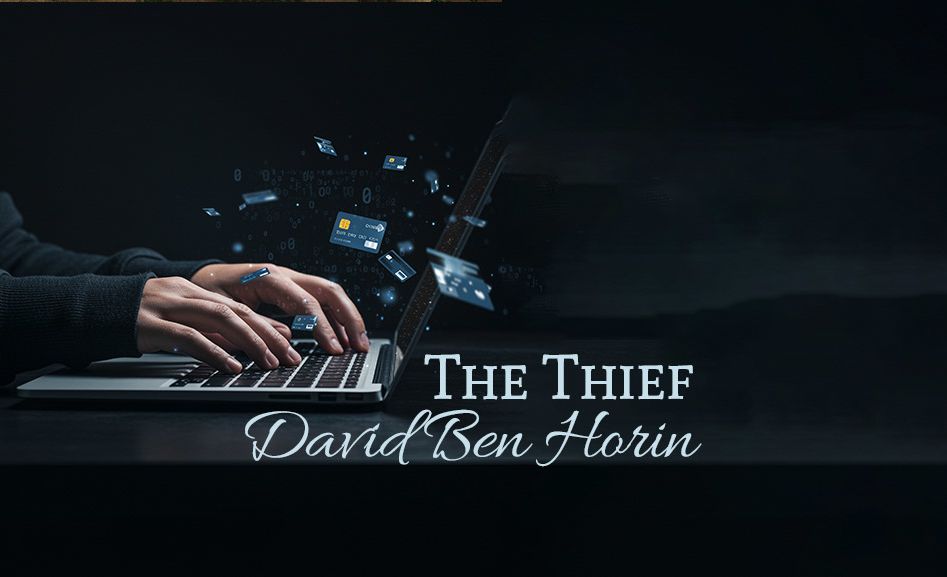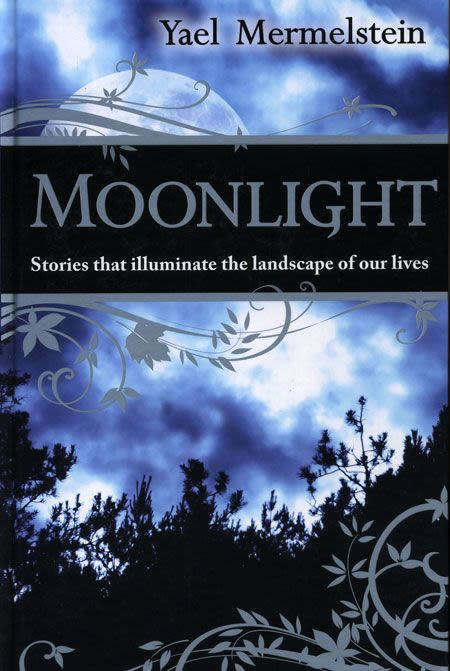
Two Types of Warfare
There are two types of madness. The first is a sudden, overwhelming desire to perform an illicit act. The second is far worse - his perception becomes so distorted that good seems like bad and bad seems like good, sin appears to be a mitzvah and mitzvah a sin.

There was a king who said to his son, “Go out and attend to my affairs.” “But father,” the son replied, “I’m afraid of bandits.” What did father do? He took a staff, carved out a setting and mounted an amulet. As he gave it to his son, the king said, “As long as this staff is in your hand, you need not fear any creature.” This is what the Holy One said to Moshe, “Tell the People of Israel: My children, toil at Torah and you need not fear any nation” (The staff is analogous to the Torah – the Tree of Life). (Vayikra Rabbah 25:1)
This midrash is wonderfully explained by the first lesson in Likutey Moharan, in a discussion of one of the stories of Rav bar Bar Chana. “Rav bar Bar Chana said: Sailors have told me of a certain wave that sinks ships and appears to be preceded by sparks of white fire. When it threatens a ship, they strike it with a club on which is engraved ‘I Am that I Am,’ and other holy Names.” As we discussed above, this wave represents the evil inclination that seeks to destroy the greatness of Israel (See above p. 153. “Who is important, who is safun?” (Moed Katan 28a). The white fire is the evil inclination’s ability to disguise itself in mitzvot. The staff engraved with Divine Names represents the Torah, which has the power to subjugate the evil inclination. Kabbalah considers Torah to be a Name of God. Through the study of Torah, one “calls” down God’s presence into creation. The Torah is also associated with the Hebrew letter vav – ו, which resembles a staff. (Vav also has a numerical value of six, and the Tablets of the Covenant measured six hand-breadths by six hand-breadths.) (Bava Basra 14a; Zohar 3:226b).
To summarize Rabbi Nachman’s words: the evil inclination literally seeks to drive a person insane. Chazal said that a person does not sin unless a spirit of madness first enters into him (Sotah 3a).
There are two types of madness. The first is a sudden, overwhelming desire to perform an illicit act. The person realizes that what he is doing is wrong, but he simply cannot overcome the driving impulse.
The second type of madness is far worse. The spirit of folly so confuses a person that he becomes totally unaware of the evil he is about to do. His perception becomes so distorted that good seems like bad and bad seems like good, sin appears to be a mitzvah and mitzvah a sin.
(I remember an incident in about 1954, in a certain synagogue in Jerusalem where men would stay up all Thursday night studying Torah. In the foyer stood a large coffee urn full of boiling water. One of the men who was drowsing off went over to the urn, opened the spigot and poured boiling water all over his head. His face immediately swelled up with painful burns. Everyone was shocked. His condition was very bad. Sometime later, I went to visit him in the hospital. He said to me, “Everyone thinks that I didn’t know what I was doing. That’s not true. I knew very well what I was doing, but I thought it was correct.” This is the second, worse condition that we mentioned above.)
Torah Study – The Only Response
These two types of madness call for two different strategies. Sometimes, madmen can only be subdued by force. Other times, they can be calmed by placing on them amulets with Divine Names. When a person cannot control his own madness, he needs the power of staffs to frighten him away from the evil he is about to do. Since he still has some presence of mind and knows that what he is doing is wrong, this approach will be enough to restrain him. However, when the mind is completely confused, no amount of beating will help. One needs to place “Divine Names” upon the person. In other words, one needs to open spiritual channels that will drive out the impure forces that have overcome him.
In an amazing way, the Torah works against both these types of madness. It gives a person strength to overcome his evil inclination, and acts as a Divine channel to calm and clarify the mind. The person learns how to fulfill the will of the Almighty, so that the evil inclination cannot deceive him. Thus, the sailors, in the bar Bar Chana story, struck the evil inclination with a staff on which was engraved with God’s holy Names.
The midrash that cited at the beginning of this chapter compares the Torah to both a staff and an amulet. The son says, “I am afraid of bandits,” suggesting more than one. There are bandits who attack in broad daylight; they obviously seek our harm. The prince fears that he will not be able to overcome them, so the king gives him a staff with which to fight them off. Then there are bandits who approach stealthily, indirectly, like the evil inclination dressed in mitzvot. Against these the king gives his son an amulet. Both types are criminals, wanted to steal the prince’s soul, God forbid. The midrash concludes with these words: “The Holy One said: My children, toil at Torah and you need not fear…”
Depression is the Food of the Serpent
One of the best disguises of the evil inclination is depression. A depressed person has no hope. He becomes apathetic about improving his condition and does not realize he has fallen into a trap. He imagines that he is doing teshuva by worrying by worrying about his sins. He doesn’t realize that he is becoming entrapped in the evil inclination’s snare.
This is alluded to in the verse: “Dirt is the food of the serpent” (Yishayahu 65:25). Rabbi Nachman explains that the Serpent – the evil inclination – thrives on dirt, that is, on heaviness, laziness, and depression (Likutey Moharan I: 189).
King David said: “My life is wasted with grief, and my years in sighing” (Tehillim 31:11). Depression and sighing literally waste a person’s life. True vitality, on the other hand, comes only by drawing close to God, as it says: “A tzaddik lives by his faith” (Habbukuk 2:4).
The Frightening Consequences of Empty Worries
I once read of an amazing phenomenon in the natural world. There is a particular type of bird that dwells in high trees. A certain snake feeds specifically on this type of bird. How does the snake trap his quarry? It crouches beneath the branch on which the bird sits and, when the bird looks down, it [Editor: snake] suddenly extends its head and bears its fangs in a tremendous show of rage. The bird is so overwhelmed by fear that instead of flying away – or even remaining on its branch – it shuts its eyes, loses all strength, and drops like a stone into the mouth of the snake. This is a good example of the strategy of the Evil One. It only needs to bring a person to despair to make him fall straight into its mouth, with no extra effort on its part. As Iyov (Job) said, “The thing that I feared has come upon me” (Iyov 3:25). Rabbi Pinchas of Koritz once said, “When a person is afraid of something, he is actually subjugated to that very thing. If he is not afraid, he remains above it” (Imrei Pinchas HaSholem, Bereishit 13; Heshbon HaNefesh, R. Menachem Mendel Zaberazer).
Fearing One’s Own Footsteps
There is another terrible state which afflicts people; when an individual is unnecessarily afraid of others. His life is racked by empty fears, and other people cause him endless suffering. They make him suspicious, jealous or angry. Yet no one is really doing anything to him; he is the source of his own suffering. This is like a wild animal that wanders from place to place without rest. No one is chasing it, but its own footsteps make such a loud noise that it thinks it is being pursued. What an empty fear! Wherever it goes, it suffers only from itself.
The “Benefit” of Depression
A wise man was once asked: Why do you never get depressed? He answered, “It never did me any good, so it’s no friend of mine”
Thank God, They Don’t Help
Someone once remarked: “It is a blessing that worries don’t actually help. People worry so much anyway. If it really did help, how much more would they worry!”
Just One Moment, Until His Anger Passes
When a person is sunk in depression, no advice can help him. He must simply wait “until the anger passes” (Yishayahu 26:20). When the moment of happiness suddenly arrives, all his problems will be solved (Zichron Zot. The Seer of Lublin in the name of the Arizal.)
(Used with permission from the author. From the book “In all my Ways” Keren Ohr Publications)











Tell us what you think!
Thank you for your comment!
It will be published after approval by the Editor.